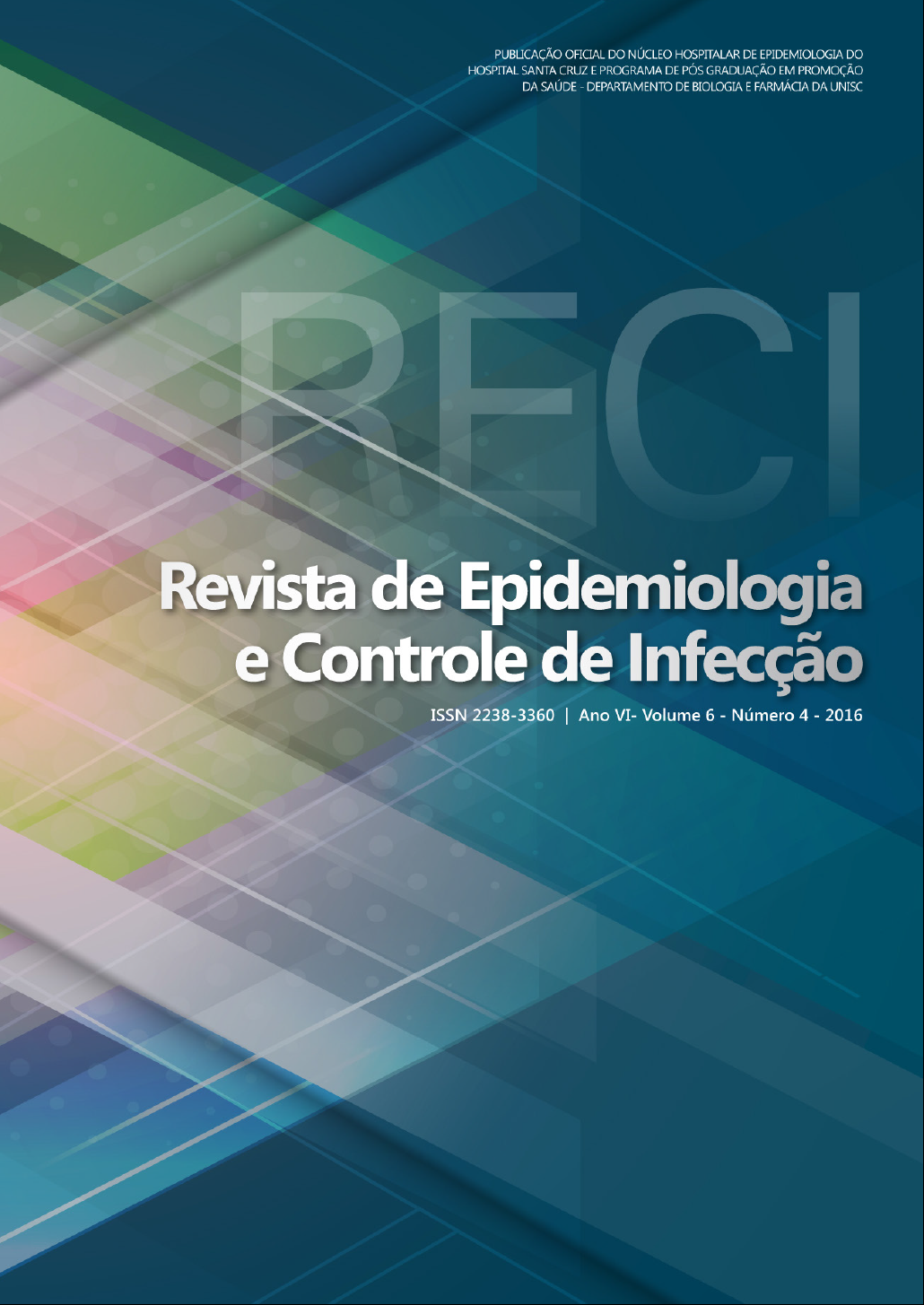The effectiveness of the Family Health Strategy and the Directly Observed Treatment in controlling Tuberculosis
DOI:
https://doi.org/10.17058/reci.v6i4.8193Abstract
Backgrounds and objective: Strengthening Primary Health Care, making it the protagonist in the care of the person with tuberculosis, favors the identification of respiratory symptoms, as well as the diagnosis and early treatment, reducing the transmission of the disease and promoting adherence to treatment. This study aimed to investigate the effectiveness of the coverage of the Family Health Strategy- FSH and the Directly Observed Treatment Strategy – DOTS in control of non adherence to tuberculosis treatment. Methods: Exploratory study, based on secondary data. The investigated variables were: TB incidence rate (CI-TB), percentage of coverage by the FHS, treatment dropout rate and percentage of supply of DOTSin Mato Grosso do Sul. It was used the hierarchical cluster analysis method to look for patterns contained in the data set. Results: The data indicate that there are groups of municipalities in which the coverage by FHS and DOTS contributes to treatment adherence and control of the number of TB cases, while for other municipalities these measures have not been effective in reducing CI-TB and abandon to the treatment. The disease is distributed heterogeneously in the state. Conclusion: Professionals and health managers need to know the tuberculosis standards in their regions prioritizing and planning actions that contribute to an effective control of disease, transmission and greater adherence to treatment in their community.Downloads
Downloads
Published
How to Cite
Issue
Section
License
The author must state that the paper is original (has not been published previously), not infringing any copyright or other ownership right involving third parties. Once the paper is submitted, the Journal reserves the right to make normative changes, such as spelling and grammar, in order to maintain the language standard, but respecting the author’s style. The published papers become ownership of RECI, considering that all the opinions expressed by the authors are their responsibility. Because we are an open access journal, we allow free use of articles in educational and scientific applications provided the source is cited under the Creative Commons CC-BY license.


